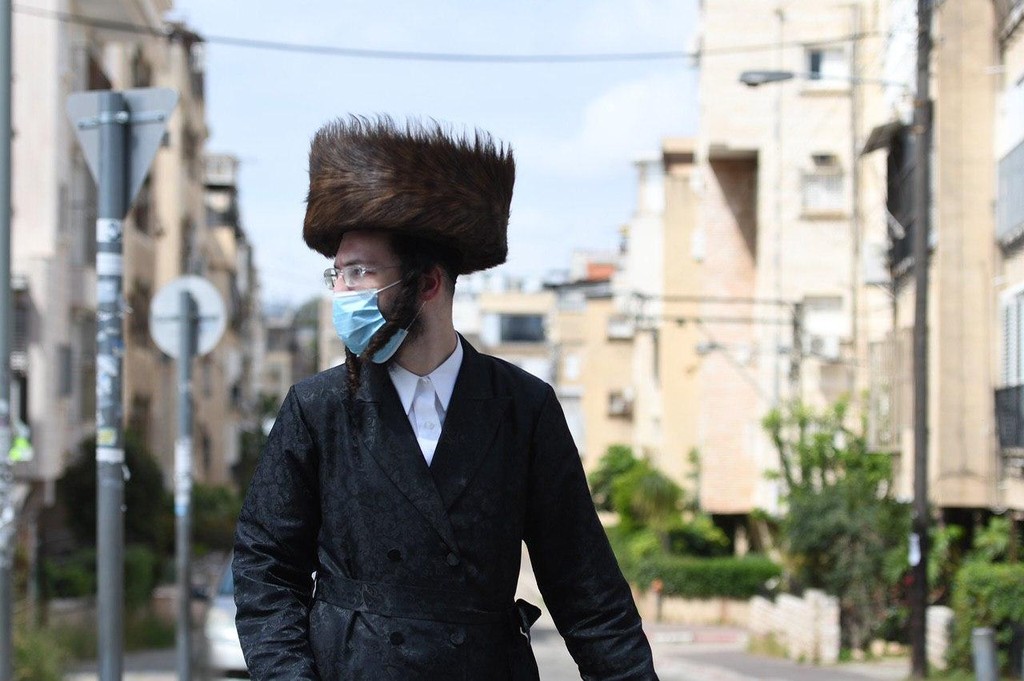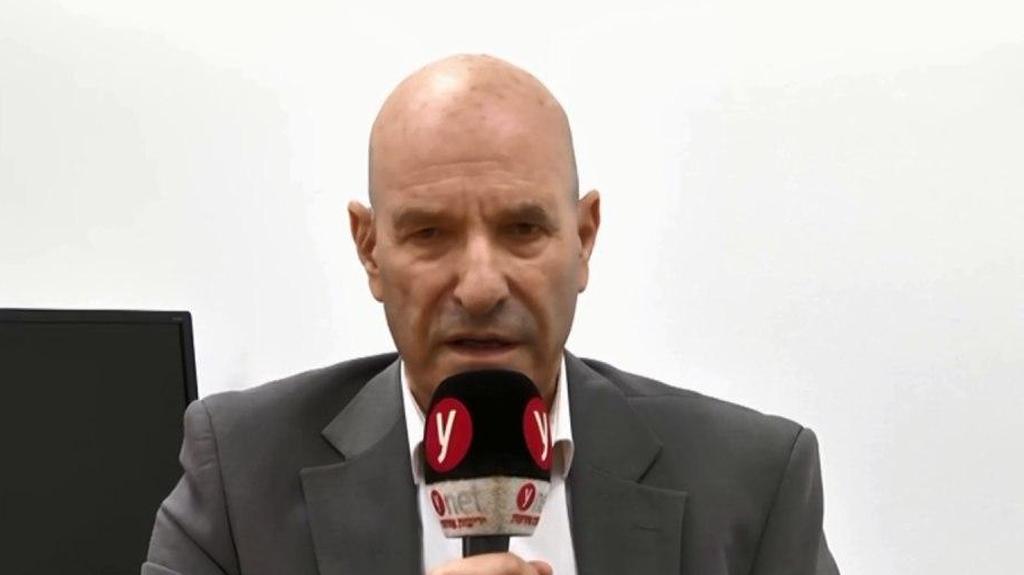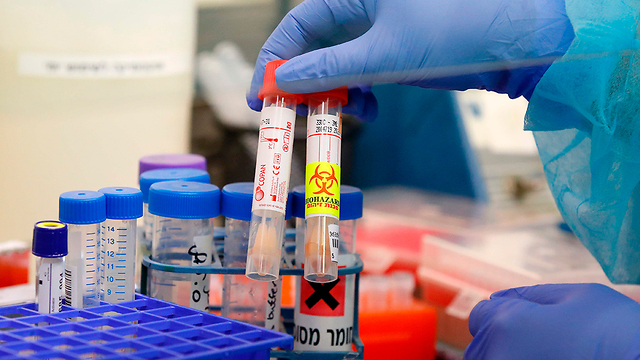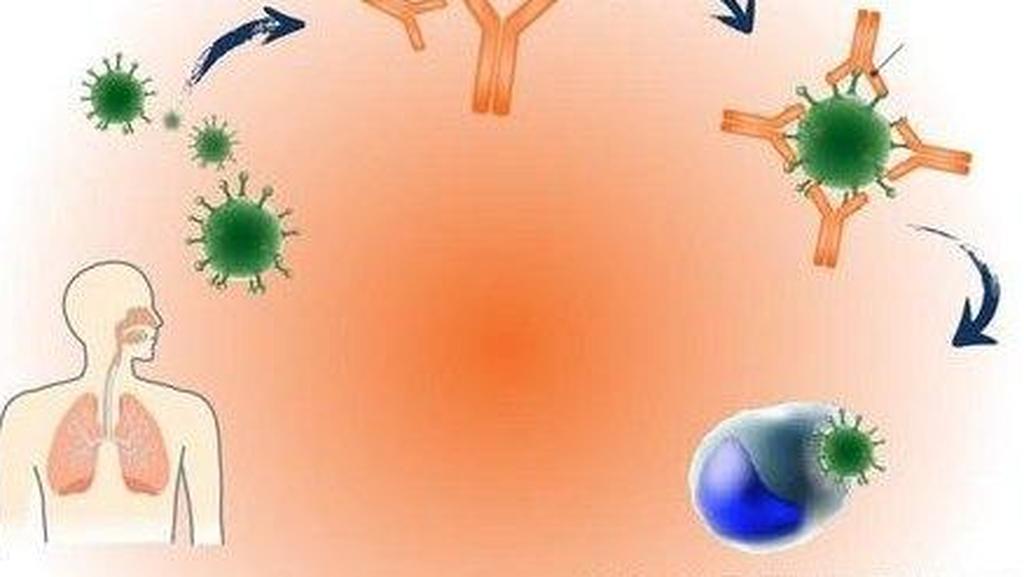Israel is preparing to pilot its test for coronavirus antibodies in the city of Bnei Brak, which has seen a massive rate of infection by the pathogen among its population.
The tests, which are designed to show whether someone has had been infected with coronavirus and developed an immunity to it. Once the tests have been trialed in Bnei Brak, they will then be used nationwide.
4 View gallery


An ultra-Orthodox man in Bnei Brak wears a mask against coronavirus
(Photo: Nadav Abas)
According to the details obtained by Ynet, the plan has received the blessing of Rabbi Haim Kanievsky, one of the religious leaders in the predominantly ultra-Orthodox city, while Israel's HMOs and the Gertner Institute for Epidemiology and Health Policy Research will participate in the pilot.
Last week, it emerged that Israel was planning to conduct 100,000 serological tests for COVID-19 in an effort to determine the degree of infection in the population - and had purchased 2.4 million testing kits several weeks ago.
The standard PCR tests that are now being used to detect coronavirus can only identify someone who is currently infected, while the serological blood tests can also identify those who have recovered and whose bodies have produced antibodies to the virus, often without them knowing that they were ever infected.
By starting the project in Bnei Brak and then extending it to other "red cities" with high rates of morbidity, Israel hopes to obtain an authentic image of how the virus has spread across the country.
"The serological tests don't really show what is going on right now," says Dr. Boaz Lev, the head of the Health Ministry's epidemic unit, which is in charge of the pilot.
"The tests show how many people have already come into contact with the virus and developed antibodies. If I got sick two or three months ago and developed antibodies, we can see that," he says.
"The [PCR] tests done with the swabs show whether or not someone has the virus at that moment in time, as compared to the serological tests that can show how many citizens have encountered the virus, forming a kind of map that says 'this is the situation'."
The pilot aims to test 3,000 people in Bnei Brak for the virus.
"We will know where we stand because to this day we can only speculate," says Lev. "We will know what we have faced and perhaps what the future holds."
The pilot will test residents of the city in three groups: The first comprises 100-150 families with a confirmed case of the virus.
The second group is symptom-free families living in a building in which there had been a confirmed cases, with some 100 families expected to participate.
The third group is a random sampling of households. The families tested in all three groups will include adults and children.
As with the other tests, the HMOs will inform the subjects of the results.
The serological tests are getting underway as the number of PCR tests is in steady decline. According to Health Ministry data, there were just 4,860 tests carried out in Israel on Sunday, as opposed to the peak daily record of more than 13,000.
The serological test is performed as a regular blood test and will be conducted around the country at clinics belonging to the health maintenance organizations. They will also be conducted inside people's homes, if the person in question is in self-isolation or unable to leave home for other medical reasons.
The tests are cheap to obtain and very simple to perform with the results expected in 40 to 50 minutes.
The antibodies, which protect the body from the virus, are said to develop some two weeks following the initial exposure to the pathogen. It is still unclear, however, just how long the coronavirus antibodies remain active in the human body.
If the tests prove to be a success, they would revolutionize the way in which Israel has battled the virus until now.
Successful widespread testing would allow large swathes of the population to do away with any self-isolation, and allow them to rejoin the workforce and even allow catch flights without the need for subsequent quarantine.
The Health Ministry said that should the tests be effective, they will first be administered to at-risk populations such as the elderly, those with underlying health conditions and medical staff.
The tests will be conducted on a voluntary basis.




